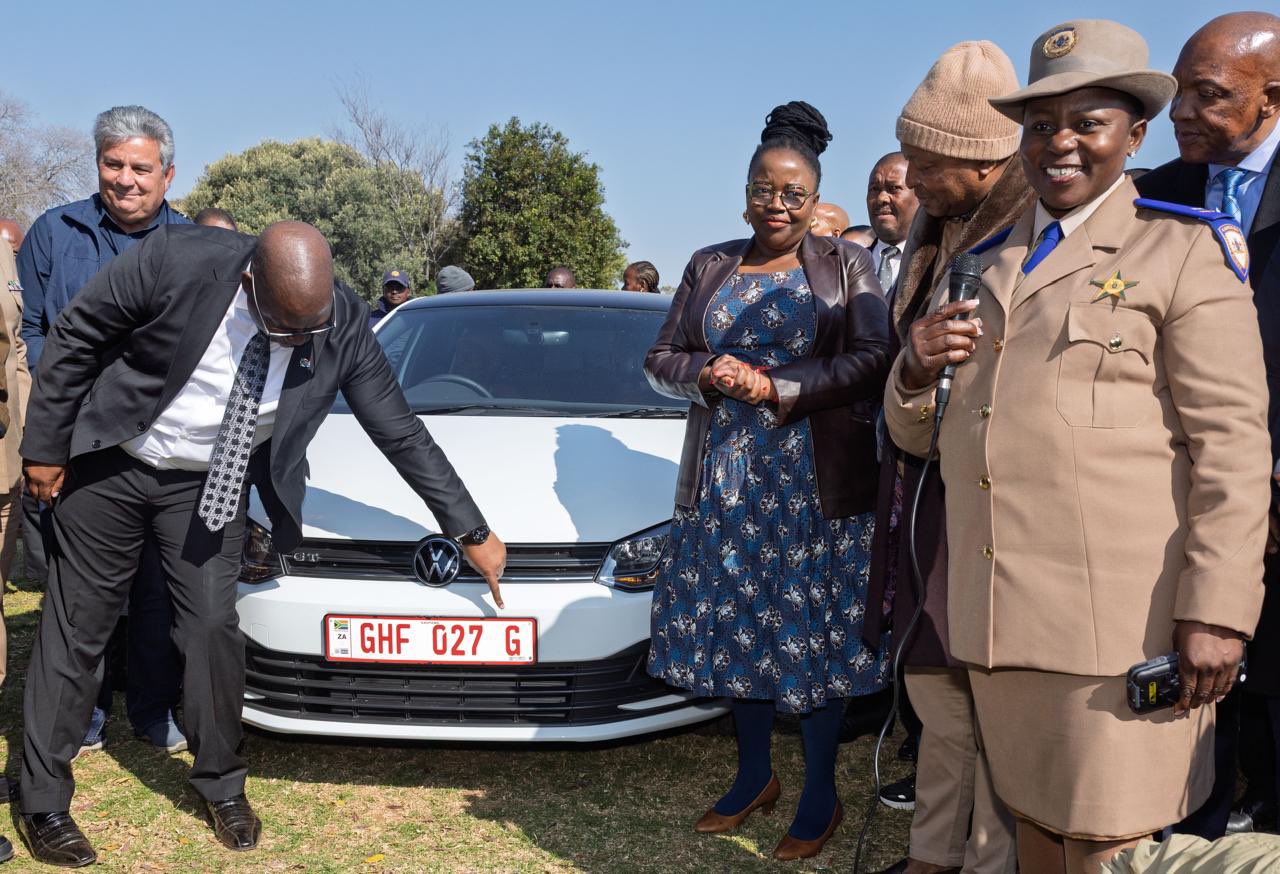News
Lesufi’s Number Plate Bluff: Why Gauteng’s 30-Day Vehicle Rule Doesn’t Add Up

Critics slam the Premier’s push for re-registration as legally baseless and economically risky.
Gauteng Premier Panyaza Lesufi has once again stirred the pot, this time with his bold claim that vehicles from outside the province must be re-registered with GP number plates if they spend more than 30 days on Gauteng roads. The problem? That’s simply not true according to South Africa’s current traffic laws.
The statement—made during public interviews and media briefings comes as Gauteng officially rolled out its long-awaited pilot of “smart” number plates earlier this June. Lesufi pitched the plates as a crime-fighting tool, boasting features like QR codes and anti-tamper decals. But it’s his repeated insistence on mandatory re-registration that’s left legal experts, motorists, and business owners raising their eyebrows and their concerns.
No Legal Ground for 30-Day Re-Registration
Despite Lesufi’s firm stance, the National Road Traffic Act (NRTA) says otherwise. According to the South African Vehicle Rental Leasing and Fleet Management Association (Savrala), the law only requires re-registration when someone changes their permanent residence.
“If you’re visiting, even for a couple of months, there’s no legal obligation to change your vehicle’s registration,” explained a Savrala spokesperson. “There’s nothing in the NRTA that mentions a 30-day threshold.”
In plain terms, just because your car’s been parked in Gauteng for a few weeks doesn’t mean it needs a GP plate slapped on it.
A Costly Misstep or Clever Cash Grab?
Motoring bodies like the Automobile Association (AA), Organisation Undoing Tax Abuse (Outa), and Driving.co.za are questioning whether the new system is more about revenue than road safety.
“If the format of the plates isn’t changing, then what exactly is the point of forcing all vehicles in Gauteng to go through a full re-registration?” asked AA spokesperson Eleanor Mavimbela. “Motorists shouldn’t be penalised for a policy that hasn’t been clearly justified.”
Outa CEO Wayne Duvenage took it further, warning that such pressure could drive companies, especially those with large fleets, to relocate registrations to provinces with fewer bureaucratic headaches.
“Fleet operators can legally register vehicles in any province where they operate,” he said. “If Gauteng makes it too difficult or expensive, they’ll just register elsewhere.”
History Repeating Itself?
Rob Handfield-Jones of Driving.co.za recalled a similar episode in KwaZulu-Natal more than a decade ago. A proposed hike in licensing fees had big hauliers threatening to move operations out of the province. Faced with economic fallout and the risk of job losses, the provincial government backtracked.
“There’s a real risk Gauteng could repeat that mistake,” said Handfield-Jones. “Businesses will not hesitate to shift registrations if it means avoiding unbudgeted costs.”
Social Media and Public Reactions
Online, Gauteng residents haven’t minced words. Many are calling the plan “tone-deaf” and “a tax by another name.” A widely circulated tweet read: “QR codes won’t stop hijackings. Fix the police, not my number plate.”
Others are poking fun at the idea of “smart plates,” suggesting the province should focus on fixing potholes and power outages before launching techy vehicle upgrades.
The Bigger Picture: Crime, Cloning and Control
Lesufi’s motivations may stem from a real problem—vehicle cloning and crime are major issues in Gauteng. But critics argue there are better, more efficient ways to address them than placing the burden on everyday motorists and companies.
Introducing modern plates isn’t inherently a bad idea. But tying them to legally dubious re-registration demands only undermines public trust and invites legal challenges.
South Africans are no strangers to grand government schemes that overpromise and underdeliver. Lesufi’s push for province-wide plate re-registration seems to be another case of overreach, especially when the law doesn’t back it up.
Until legislation changes or clear, transparent reasoning is given—motorists and businesses have every right to question the Premier’s claims. For now, the 30-day GP plate rule isn’t just controversial. It’s fiction.
Are Gauteng’s New Number Plates About Safety or Just More Revenue?
{Source: My Broad Band}
Follow Joburg ETC on Facebook, Twitter , TikTok and Instagram
For more News in Johannesburg, visit joburgetc.com



























